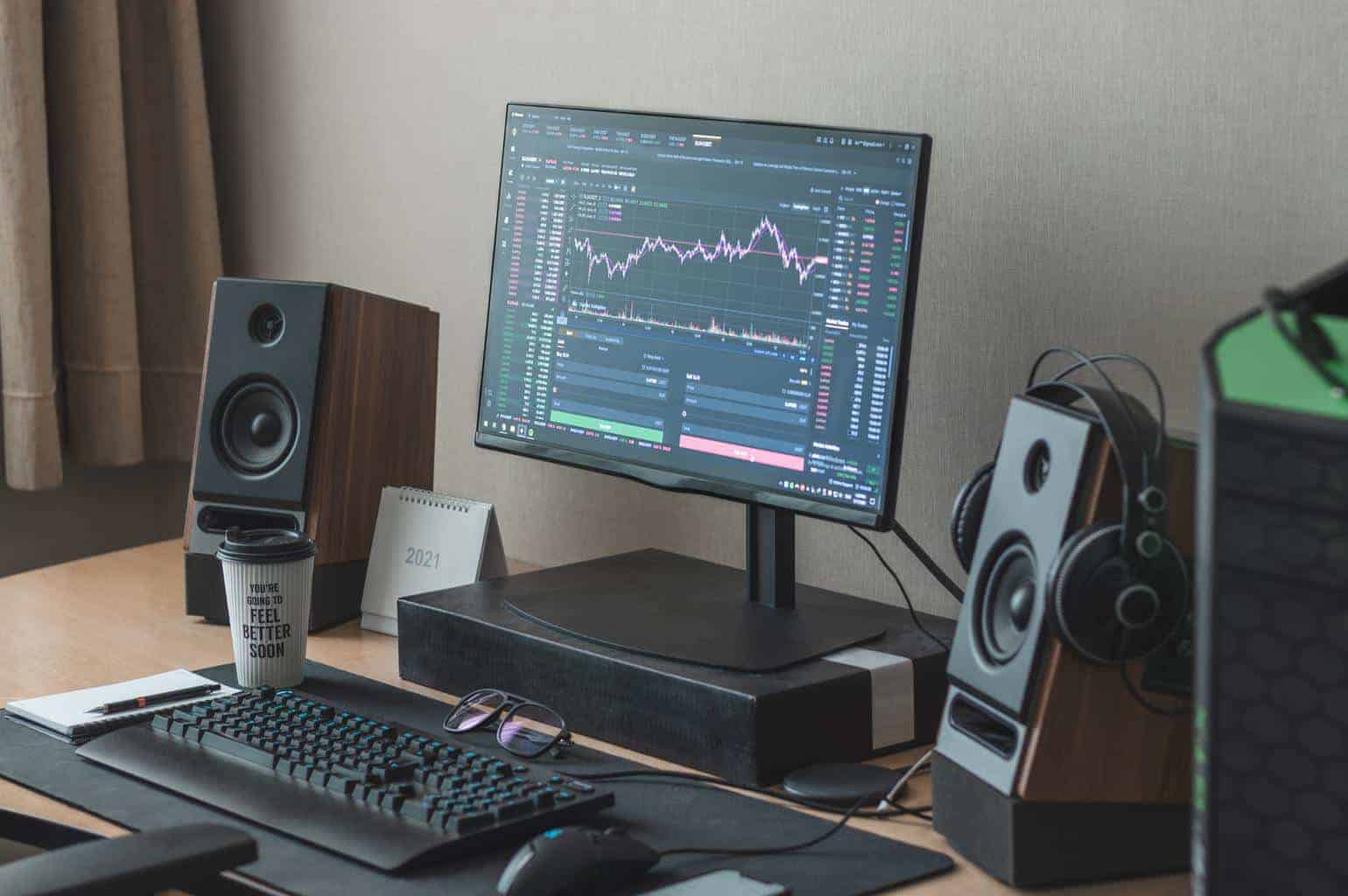Cryptocurrencies have become more accepted as an alternative financial investment. They started as an experiment, but they are now quickly growing more accepted by the general public and increasingly by traditional financial businesses and institutions. While they’re now a significant force in investment markets, crypto is still a unique asset class with an economy of its own.
Crypto exchanges are one of the most important aspects of the cryptocurrency market. They have long been the door that most beginners go through when first investing. However, like the broader crypto market, the exchanges have been evolving and will continue to.
So, let’s dive right into what crypto exchanges are and how they work to give you an understanding of how to trade crypto through an exchange.
What Is a Cryptocurrency Exchange?
A cryptocurrency exchange (aka bitcoin exchange, crypto exchange) is a platform where users can buy and sell cryptocurrencies. Each exchange will offer a different set of digital currencies. They will also accept a certain list of fiat currencies for the purchase and sale of those cryptos. Lastly, each exchange will enable certain crypto-to-crypto transactions (Bitcoin to Litecoin, Ethereum to Bitcoin, etc.)
The diversity of cryptocurrencies is reflected by the diversity of cryptocurrency exchange platforms. However, while each exchange offers a unique selection of available transactions, all of them reflect the current market price of any cryptos they offer.
Most crypto exchanges also offer services reminiscent of banking services. Again, the scope of services will vary by platform. But you can always expect a mix of:
- Buying or selling certain accepted cryptos
- Holding fiat currencies in an account on the exchange
- Hosted wallets where you can store your cryptos on the exchange
- Passive investment opportunities (staking and lending cryptos)
- Transferring fiat currencies to and from your connected bank account
Exchanges may also offer other features beyond simple transactions. They may offer newsletters, educational materials, real-time price checking, customized alerts, community forums, and more.
How Does a Cryptocurrency Exchange Work?
Cryptocurrency exchanges are normally simple platforms to use. They are set up to facilitate cryptocurrency activities. Typically, users just need to set up an account, connect their bank, and get started trading.
If you’re thinking of using a crypto exchange, the first step is to find the right platform for you. Some platforms are more beginner-friendly, and others offer more complex features and sacrifice some ease of use to appeal to more advanced traders and investors.
Once you’ve chosen an exchange, you need to create an account. Crypto exchanges are financial platforms and operate similarly to brokerages. So, you’ll need to provide some basic information and attach a payment method.
Once your account is set up and you have a payment method, you can start making transactions. Most exchanges have some restrictions, such as transaction limits. However, they usually use those for security purposes and can increase such limits for verified users.
Most Common Features of Crypto Exchanges
Crypto exchanges can come with many different features. The common features you can expect to find during your search include:
- Real-time price updates
- Custom alerts
- Crypto staking
- Crypto lending
- News sections
- Multi-factor authentication
- Diverse deposit and payment methods
- Copying expert portfolios
- Community forums
What to Look for in a Cryptocurrency Exchange
When choosing the best crypto exchange to trade cryptocurrency for you, it’s important to compare several factors when looking at exchanges.
Ease of Use
Ease of use is important for everyone, but especially for beginners. The crypto world can be quite complex, so if you’re just getting started, it’s worth going with an exchange that’s not too hard to use. Well-designed user interfaces and customer support can make an exchange beginner-friendly.
To start, it’s important to consider restrictions. Some jurisdictions ban anyone from using crypto. Others make it more difficult for exchanges to gain the licensing they need. This isn’t always an issue, as most countries and most states don’t place that many restrictions on individuals or exchanges.
There are also restrictions set by exchanges to consider. Geo-restrictions may restrict your available choices.
Apart from restrictions, it’s important to consider the payment methods they accept, such as paying with a debit card or your credit card and the trading volume.
Security
Security is a feature that you should look into. The best cryptocurrency exchanges offer security features to protect your digital assets. You should look into things like ensuring you are the only one with access to your private keys, whether they offer cold storage or not, and password security features such as two-factor authentication.
One issue with many exchanges is their wallet solutions. Hosted wallets are any wallets that you do not maintain custody over. Crypto exchanges are typically trustworthy and make storage simple and safe, most of the time. The issue is whether or not hackers can break into the exchanges and what the exchanges can do about it.
Exchanges make their security measures clear on their websites and in their white papers. It’s always better if you can rest assured your cryptos are secured safely on a platform with the most up-to-date and effective security practices.
Costs and Fees
Most exchanges make a profit from some mix of trading fees, account management (periodic) costs, a taker fee, and transaction fees, among others. It’s important to consider all the costs of using any exchange before investing the time and money to create an account to ensure you are paying low fees.
Costs can vary by exchange. Many exchanges charge withdrawal fees for withdrawing fiat currency to your bank account, for example. Fees are one factor that separates crypto exchanges from each other in the most significant way.
Fee structures can also be a serious consideration. For example, many exchanges charge a smaller portion for larger transactions. This can make small transactions proportionally far more expensive to use.
The crypto exchanges also have unique costs, such as gas fees. To get the best deal possible, you need to look at the big picture, consider the scope of your activities, and add up all individual costs.
Selection
Coin availability is an important factor for crypto buyers, depending on your goals. Most crypto exchanges offer the most popular cryptos. For example, almost all exchanges offer bitcoin, Ethereum, and other popular coins like Litecoin. Some also have their own tokens. But even when it comes to the most commonly traded cryptos, some exchanges may not offer what you’re looking for.
Comparing exchanges by their selections is very easy. Most exchanges will list the coins they offer plainly, so you can see which ones are available at a glance.
Liquidity
Exchanges can vary to a surprising extent when it comes to liquidity. Many make it easy to exchange fiat currency for cryptos but make the reverse more difficult.
On top of trading pairs, there’s also the question of speed. Depending on your needs, you may want to consider the liquidity of each crypto exchange.






